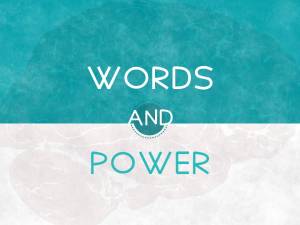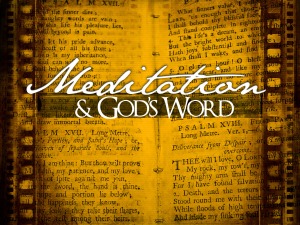3 Keys to getting the most out of your Bible reading
 Most Christians would never do to their physical bodies what they do to their souls. Come to church for one square meal a week from the Word, and snack a little on Christian radio Monday through Friday. If we are to feed our soul regularly from the Word, it means that we will have to prepare our own meals. We will have to spend time studying the Word for ourselves. Here are three ways to get started.
Most Christians would never do to their physical bodies what they do to their souls. Come to church for one square meal a week from the Word, and snack a little on Christian radio Monday through Friday. If we are to feed our soul regularly from the Word, it means that we will have to prepare our own meals. We will have to spend time studying the Word for ourselves. Here are three ways to get started.
(1) Start by Consistently Reading the Bible
One of the important steps in reading the Bible is to do it daily. While not a large book (most Bibles are less than 1000 pages), reading it daily gives the opportunity for meditating and applying that particular portion of the Scripture on a regular basis.
There are numerous ways to read through the Bible. Here are a few:
- Read through one book of the Bible for 30 days. While it is true there are 66 books in the Bible investing your effort in one book for one month will reap rich dividends. Starting the first of the month, pick a book, read it and reread it until the end of the month,
- Reading a key chapter of the Bible each day. While using this approach will not allow you to read every verse in the Bible in the course of the year, you will move through the high points without getting lost in the “lists of names” or Old Testament prophecies that often require greater cultural study for understanding. You can find a key chapter reading schedule here. http://wp.me/p1ZvVJ-dd
- Reading the Bible through chronologically will open up some insights you otherwise might miss. Typically when we read a book we expect the events to be communicated in chronological order. However, the Bible groups its various books by genre or style of writing (i.e. histories, poetry, prophecies, etc.). You can find a chronological reading schedule by visiting here. http://wp.me/p1ZvVJ-dd
(2) Don’t be Afraid to Mark Up Your Bible
As you read the Bible daily don’t be afraid to underline or circle key words, phrases or verses. To improve your comprehension of the Scriptures, Dr. Howard Hendricks recommends you look for the following things when reading. Look for: (1) Things that are emphasized, (2) Things that are repeated, (3) Things that are related, (4) Things that are alike, (5) Things that are unalike, (6) Things that are true to life.1
(3) Journal Along Side Your Bible
As you study jot down what you’re learning. Here are a few questions to get you started:
· What is the most obvious Bible truth I’ve learned?
· What have I learned about the character of God?
· Are there words or ideas that are repeated in the passage? If so, what are they?
· Are there words that I don’t understand? What do they mean?
· Are there other verses or passages in the Bible that help me understand this passage?
Years ago I memorized a brief poem that I often return to when seeking meaning from a Biblical text. I encourage you to answer the applicable question from the poem to improve your understanding of the Biblical passage.
I had six faithful friends, They taught me all I knew,
Their names were how, and what, and why,
when, and where, and who.









